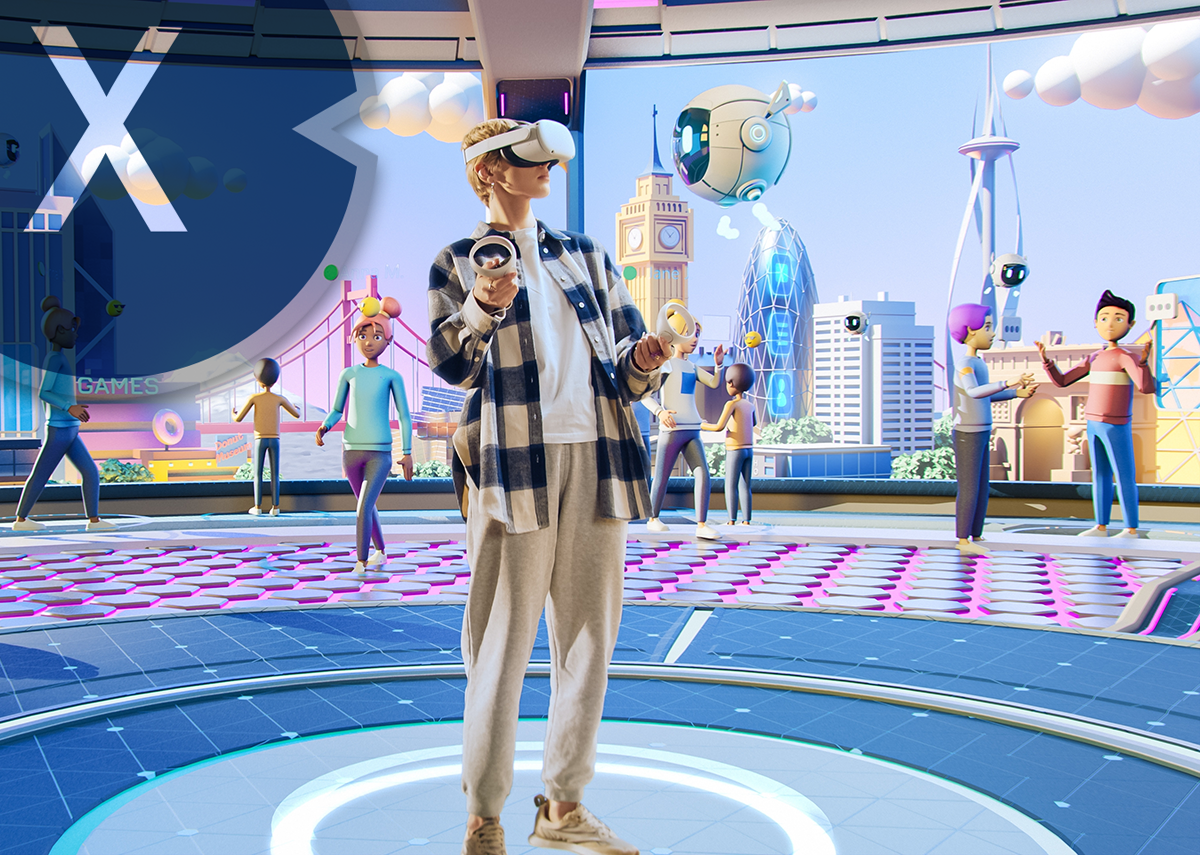The emergence of a true metaverse
In recent years, the term “metaverse” has attracted more and more attention and has become a trend term in the technology industry. A metaverse is a virtual, shared space-time continuum that consists of a variety of networked virtual worlds and can be experienced and interacted by users by avatars. It would be a place where people not only communicate with each other, but also work, play, play, learn and act - a complete digital representation of the real world in which new social and economic opportunities arise.
The current situation: partial metaverses and networked platforms
So far, there has been no fully developed consumer meta verse, but rather partial meta -versed and networked platforms that cover some aspects of it. Platforms such as “Second Life” and “VRChat” offer virtual environments in which users can interact as avatars and carry out various activities. These platforms have their own ecosystems and communities, but there is still no extensive networking with other platforms.
Technological challenges
Creating a true metaverse presents developers with enormous technological challenges. It requires the integration of virtual reality (VR), augmented reality (AR), artificial intelligence, blockchain technology and more to provide a seamless and immersive experience. Standards and protocols need to be developed to ensure interoperability between different platforms and give users the freedom to move their identities and virtual items between worlds.
Big players are getting involved
Despite the technological hurdles, some of the world's largest technology companies have recognized the potential of a metaverse and are investing heavily in the development of corresponding platforms. Companies like Facebook (now Meta), Microsoft, Google, and others have already invested significant resources into research and development of the Metaverse. Meta has announced that it will invest billions of dollars in the Metaverse and plans to transform its social media into an immersive virtual environment.
Impact on the economy and society
A functioning metaverse could have profound effects on the economy and society. It would create new opportunities for e-commerce as companies could sell their products and services in a virtual environment. Virtual meetings and conferences could become standard and reduce business travel. Education and training could be transformed into interactive and immersive experiences that take learning to a new level.
New social experiences and challenges
The Metaverse would also enable entirely new social experiences. People could meet friends in virtual worlds, attend social events, and participate in activities together. However, it would also introduce new challenges around privacy, security and online abuse that would need to be addressed to ensure a safe environment for users.
Cultural aspects and identity
The Metaverse would also raise the question of cultural identity. What impact would it have on cultural diversity if people from different regions and cultures interacted with each other in virtual worlds? How might cultural expressions and identities be preserved and protected in the Metaverse?
Regulation and Ethics
The development of a metaverse also raises complex ethical and legal questions. How could virtual property rights be enforced? How could governments regulate the metaverse to combat online crime and abuse of virtual environments without restricting users' freedom and creativity?
Fascinating concept
The Metaverse is undoubtedly a fascinating concept with enormous potential, but there are still many technological, social, cultural and ethical hurdles to overcome. Developing a full-fledged metaverse will take time, effort, and collaboration, but if successful, it could revolutionize the way we live, work, and interact with one another.
Our Industrial Metaverse configurator
Just try out our universally applicable (B2B/Business/Industrial) Metaverse configurator for all CAD / 3D demo options:
Xpert (B2B/Business/Industrial) Metaverse configurator for all CAD / 3D data can be used on all devices, one platform!
Suitable for:
Why Metaverse is not just Metaverse
Understanding the term “metaverse” can vary depending on the context, and there is no uniform definition. The term “metaverse” generally describes a virtual environment that consists of digital worlds, augmented reality (AR), virtual reality (VR) and other immersive technologies in which people interact, communicate and carry out various activities.
However, there are different interpretations and interpretations of the metaverse that can lead to differences. Here are some reasons why not all Metaverses are the same:
Different technology platforms
There are several technology companies and platforms that are developing or talking about their own version of the metaverse. Facebook (now Meta Platforms, Inc.), Microsoft, Google, Epic Games and others are involved in creating their own Metaverse-like environments. These platforms can have different functions, interaction options and aesthetics.
Operating system and device dependency
Some Metaverse-like environments may be tied to specific operating systems or devices. For example, some VR-based Metaverse platforms might only be compatible with certain VR headsets or gaming consoles, while others are accessible via the web.
Purpose and focus
Some Metaverse concepts could focus on social interactions and collaboration, while others are aimed more at gaming, trading, education, or other specific applications.
Different connectivity
The Metaverse idea involves connecting people from all over the world in a shared virtual environment. However, the type and quality of network connectivity can vary, and not everyone can have the same immersive experience.
Stages of development
Some Metaverse projects are still in early development and offer limited functionality, while others may be more advanced and support multiple use cases.
Metaverse interpretations
In summary, there are various interpretations, platforms, technologies and advances in development, which mean that the concept of the metaverse is diverse and cannot be easily reduced to a single definition. The Metaverse is an evolving concept that is being actively shaped by many players in the technology industry.
New territory for newbies: What you should know now about blockchain, tokens, NFTs, wallets, cryptocurrency and the metaverse
In today's digital world, terms such as blockchain, NFTs, wallets, cryptocurrencies and the metaverse have become increasingly present. For newcomers, these terms may seem confusing and complex at first. Here we try to explain these terms in an understandable way and give you important and interesting details about them.
More about it here:
Opinion & criticism of “Metaworse”: The Metaverse is crap – and risky, pointless & dangerous for companies | Mechanical engineering & industry sector
How Metaverse and AI are changing the world - A world in unprecedented change is upon us
More about it here:
Xpert.Digital – Pioneer Business Development
I would be happy to serve as your personal advisor.
You can contact me by filling out the contact form below or simply call me on +49 89 89 674 804 (Munich) .
I'm looking forward to our joint project.
Xpert.Digital – Konrad Wolfenstein
Xpert.Digital is a hub for industry with a focus on digitalization, mechanical engineering, logistics/intralogistics and photovoltaics.
With our 360° business development solution, we support well-known companies from new business to after sales.
Market intelligence, smarketing, marketing automation, content development, PR, mail campaigns, personalized social media and lead nurturing are part of our digital tools.
You can find out more at: www.xpert.digital – www.xpert.solar – www.xpert.plus


